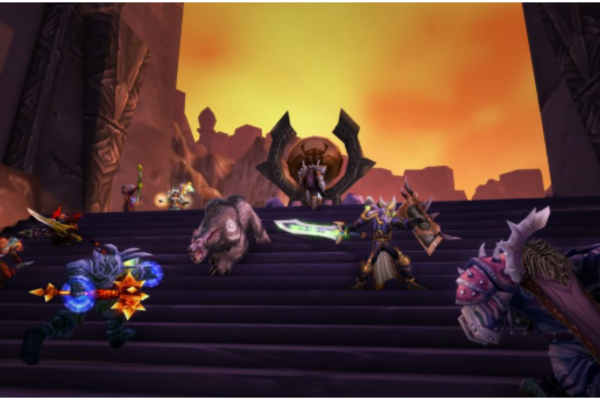The Booming Rank Boosting Industry: Gaming’s Double-Edged Sword?
12 February 2025
5 Mins Read

toc impalement
Imagine logging into your favorite competitive game, ready to climb the ranks, only to face opponents who move with robotic precision or teammates who play like they’ve never held a controller.
Welcome to the shadow rank boosting industry, a $111 million-a-year underground economy that’s reshaping competitive gaming. From League of Legends to Overwatch, players are paying top dollar to artificially inflate their status, but at what cost?
The Boosting Economy: By the Numbers
Rank boosting isn’t a niche hustle, it’s a full-blown industry! In League of Legends alone, researchers estimate 452,769 boosted accounts (3.22% of all ranked players), while Overwatch and Dota 2 trail closely with 46,218 and 101,851 boosted accounts, respectively. For context, Riot Games once identified 30,000 boosted accounts in a single day.
| Game | Boosted Accounts | Revenue (€) |
| League of Legends | 452,769 | €86.4 million |
| Overwatch | 46,218 | €8.7 million |
| Dota 2 | 101,851 | €16.4 million |
What Does A Typical Rank Boosting Order Look Like?
Our research online and experience tells us that players typically place orders in a wide range – it can go as high as a thousand euros, and as low as 10 euros. On average, players settle for an order worth 50 euros.
However, it is safe to say more and more players are investing money in rank boosting at both ends of the price range. Moreover, in the case of specific games where players opt for boosting, League of Legends emerges to be the most popular option.
But why League of Legends? Why not any other game? This could easily be because the game is highly competitive. Moreover, the high-end ranks in this game require time involvement and exceptional skills.
In addition, the industry depends mostly on a high rate of reorders among players, with the majority of players opting to go back for extra boosting services. Naturally, this shows that the need for rank boosting is consistent and strong.
Why Players Purchase Boosts For Playing?
One of the most significant reasons behind players opting for boosting services is that most players are lone wolves – these players are all playing alone and fail to reach a certain rank quickly on their own. The winning rate is somewhere between 55 to 60%
Naturally, this is messy and frustrating for anyone who has gaming skills but is not able to find any consistent team to play together. By paying for boosts, the same players can easily improve their winning rates, reaching the rank of their dreams quickly.
For most players, a high rank in any game is a symbol of prestige and a badge of honor – it is a way to show off your gaming skills to other players.
Of course, there are other reasons as well. In certain cases, players are so frustrated with their experience within a game, that they end up opting for boosting services. For instance, a player may have come across several Smurf accounts within a game – it can be both demoralizing and frustrating.
Alternatively, it is also possible that some players deal with multiple trolls or players who lack good skills, making it challenging to win and climb the ranking ladder. Naturally, in such cases, opting for rank-boosting services offers an effective and quick way to make the whole experience better.
So, here are the three primary reasons as to why players pay for boosting in the first place!
- The Prestige Paradox:
In games like Apex Legends or Valorant, rank isn’t just a number, it’s social currency. High-tier players gain credibility, influence, and even tournament eligibility, and for many, getting a Valorant boost is less about skill and more about status.
- Reward Chasing:
68% of boosted accounts in League are pushed just enough to unlock seasonal rewards, exclusive skins, titles, or in-game currency, before dropping back down. It’s gaming’s equivalent of renting a luxury car for Instagram clout.
- Escaping “Elo Hell”:
Stuck in rank purgatory? Boosters promise salvation. As some WoW players note, boosting provides access to endgame content that’s otherwise locked behind skill walls or grueling grind sessions.
How The Industry Strikes Back?
Game studios aren’t idle. South Korea’s strict anti-boosting laws have made its servers a pro-gamer haven, while Valorant’s hardware bans raise the stakes for cheaters. Still, as one developer admitted at the Live Service Gaming Summit, “It’s an arms race, we patch one exploit, they find another.”
The Potential Dark Sides Of Rank Boosting Industry:
Let’s check out the potential dark side of the rank boosting industry – here are the biggest issues with this industry!
- The Gatekeeper Effect:
Boosted accounts clog higher ranks, creating artificial barriers for genuine players. Imagine training for a marathon only to find the finish line guarded by runners who took a taxi. This imbalance ruins matchmaking, turning competitive modes into stomping grounds for mercenaries.
- Tournament Integrity At Risk:
When Dota 2’s Ancient 7 rank shows abnormal player spikes or Overwatch’s Gold tier becomes inexplicably crowded, it’s not skill, it’s fake! Open-entry esports tournaments relying on rank for qualification become vulnerable to imposters, potentially skewing results.
The Potential Upsides Of Rank Boosting Industry:
Just because there are downsides, we can’t ignore the upsides of the rank boosting industry – let’s check those out!
- Skill Transfer:
Surprisingly, some players use boosting as a masterclass. By observing elite boosters in WoW raids or LoL matches, amateurs can absorb strategies they’d never see in their skill bracket.
- Economic Opportunities:
In regions with limited gaming infrastructure, boosting becomes a side hustle. Top-tier Dota 2 boosters can earn more than local minimum wages, creating a controversial but real income stream.
So, Is Rank Boosting “Good” for Gaming?
Like loot boxes or microtransactions, the rank boosting industry exists in a moral gray area. It democratizes access to elite content but corrupts competitive integrity. It fuels a black market but funds aspiring pros.
As games evolve into live services, with Fortnite and Warzone generating $26 billion and counting, the industry must decide: Is rank a measure of skill, or just another commodity?
Where do you stand on boosting? A necessary shortcut or competitive poison? Share your thoughts and whether you’ve ever been tempted below.
Additional Reading:


















Comments Are Closed For This Article